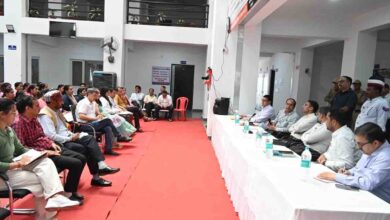Junk food consumption & delayed marriages increase infertility cases

Thursday, 03 October 2024 | MANSI BHAMBRI | DEHRADUN
A combination of factors, including delayed marriages, consumption of unhealthy food and obesity, is contributing to the rising rates of infertility among women, the experts said. They have noted a significant increase in infertility cases, averaging around 10 to 15 per cent.
Infertility is defined as the inability to conceive after a year or more of regular unprotected sexual intercourse. To address this issue, experts recommend individuals, particularly women, to avoid regular consumption of junk food and to increase physical activities as much as possible.
Talking to The Pioneer, a gynaecologist Dr Sujata Sanjay said that she has been noting a steady rise in infertility. “One thing must be understood. Infertility is not solely a female issue as males are also affected. What is worrisome is that around 90 per cent of the young people are experiencing Polycystic Ovary Syndrome (PCOS) which can eventually lead to infertility,” she said.
Asked what is triggering this alarming trend, Sanjay said that sedentary lifestyles, poor dietary habits and obesity are the key contributors to the rising infertility rates among women. “Poor eating habits often result in obesity which can trigger hormonal imbalances like PCOS. Hormonal imbalances can disrupt ovulation and lead to infertility. There are other factors too: blocked tubes and infections in the reproductive organs or uterus,” she added.
Sanjay underscored the importance of improving dietary habits, avoiding junk food and meals high in carbohydrates and increasing physical activities to prevent infertility in females. She also stressed the need for females experiencing menstrual c to consult a gynaecologist promptly to avoid future fertility problems.
Speaking on the same matter, another gynaecologist Dr Manisha Singh said that infertility cases among females have been on the rise for the past five to 10 years. She attributed this increase to various factors, including late marriages, consumption of junk food, obesity, long-distance relationships and others. She stressed on early marriages, citing the fact that women under 26 years can ideally conceive while those over 26 years often face fertility challenges.
She further warned that the consumption of unhealthy food can lead to an increase in obesity which in turn can cause hormonal imbalances. “As the body mass index rises, while the ovaries remain the same size as before, infertility risks also increase. Sedentary jobs and lack of physical activity are contributing factors to infertility. To prevent this, it is important for women to refrain from consuming junk food, engage in more physical activities, reduce the use of electronic devices and most importantly, take a three-year break between their first and second pregnancies. Additionally, planning pregnancies in a timely manner can help reduce the risk of infertility,” she said.






